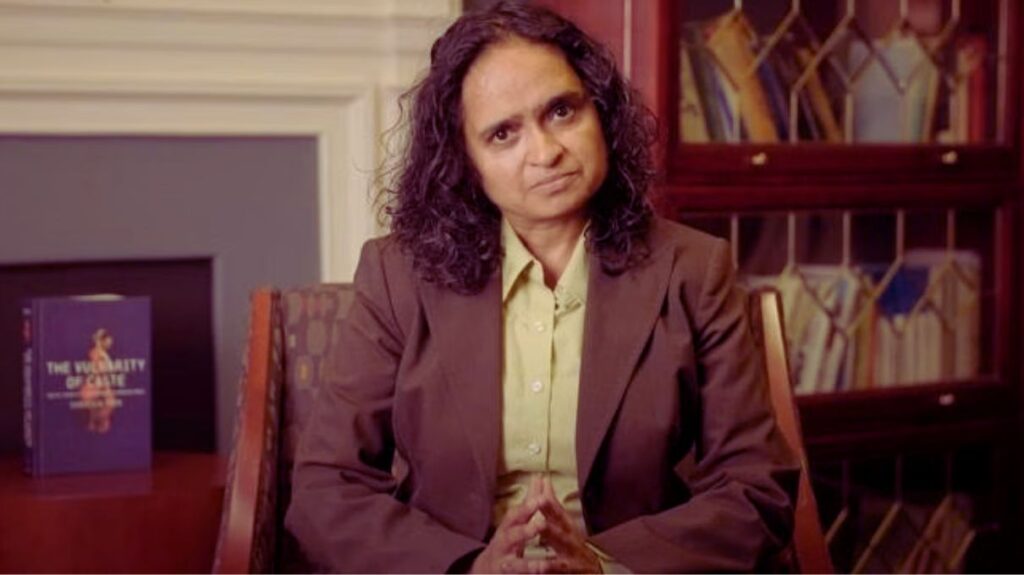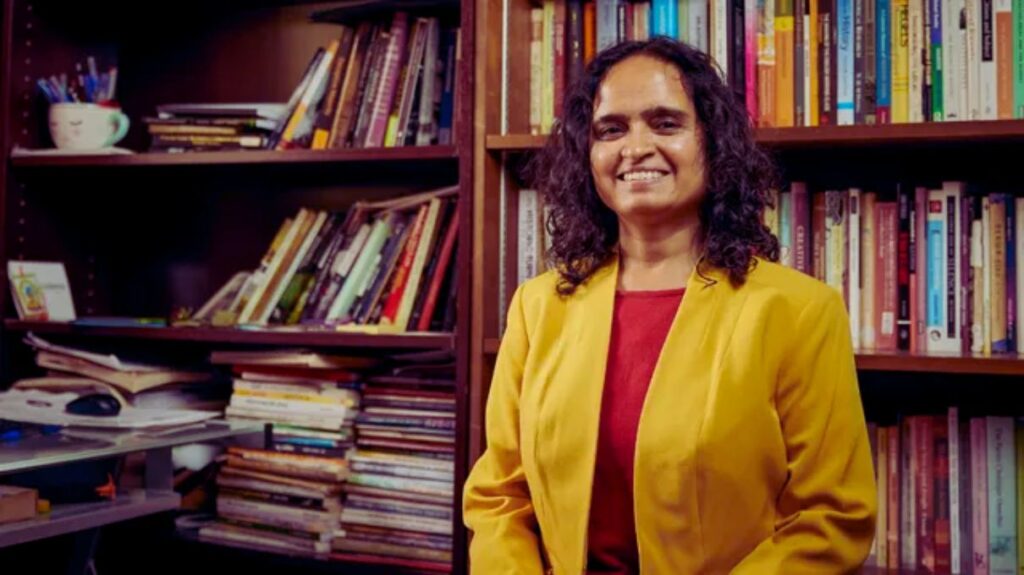The John D. and Catherine T. MacArthur Foundation made an exciting announcement on October 3, 2024. They revealed their 2024 class of fellows, often called recipients of the prestigious “genius grant.” One standout among this year’s 22 fellows is Shailaja Paik, a distinguished historian of modern India. Paik has gained recognition for her research on caste discrimination, focusing on Dalit women and the intersections of caste, gender, and sexuality. Her work continues to illuminate the struggles and challenges faced by marginalized communities in India.
Shailaja Paik currently resides in Cincinnati, Ohio, where she teaches at the University of Cincinnati. Her research provides critical insights into the systemic discrimination that Dalit women endure. Paik explores how caste structures influence the everyday lives of Dalit women while diving deep into their gender and sexual identities. Her work challenges traditional societal narratives, offering a new lens through which we can better understand caste oppression and gender inequality in modern India.
Shailaja Paik Dalit Studies Scholar Awarded 2024 (toptrendshub.com)
Paik’s journey as a scholar of Dalit studies has made her a key figure in social justice movements both in India and abroad. Her research is not only academic but also deeply personal, as it amplifies the voices of those who have been oppressed for generations. In this way, Paik’s work resonates beyond university walls, impacting activists and social reformers committed to dismantling the caste system.
Shailaja Paik: A Leading Advocate for Dalit Women’s Rights

Shailaja Paik contributions to Dalit studies go beyond academic theory. Her work offers real-world implications for understanding the social and cultural struggles faced by Dalit women. Born in India and now 50 years old, Paik has spent much of her life advocating for the rights of marginalized women who endure multiple layers of discrimination. As a Dalit woman herself, Paik understands firsthand the issues surrounding caste, gender, and sexuality in India. She channels this understanding into her scholarship, using her platform to raise awareness and create change.
Paik has centered her research on how caste discrimination impacts Dalit women in all aspects of their lives. Whether exploring the intersection of caste and sexuality or studying gender-based violence, Paik consistently highlights the complexity of oppression. Her work also serves as a source of empowerment for Dalit women, who often navigate society’s harshest realities with resilience and courage. By giving these women a voice, Paik emphasizes their agency in resisting systemic oppression.
Through her advocacy, Paik has established herself as a leader in the global movement for gender and caste equality. She brings much-needed attention to how marginalized communities resist and challenge oppressive societal norms. This makes her work particularly significant today, as caste discrimination remains deeply rooted in many parts of India, despite various efforts to combat it.
The MacArthur Fellowship: Unrestricted Support for Creative Freedom
The MacArthur Foundation awards the “genius grant” annually to individuals who exhibit exceptional creativity and dedication to their fields. Each fellow receives $800,000 over five years, giving them the financial freedom to focus on their work without constraints. This funding allows recipients to pursue projects that may have otherwise lacked financial backing, opening new doors for creative and intellectual exploration.
Shailaja Paik, along with 21 other fellows, now has access to this generous support, empowering her to continue her groundbreaking research. Unlike most grants, the MacArthur Fellowship offers unrestricted funds. This gives Paik the freedom to decide how best to utilize the award, whether for research, advocacy, or developing new initiatives related to Dalit studies.
The fellowship’s selection process involves a unique nomination system, where candidates do not apply directly. Instead, community members and peers nominate individuals based on their contributions and influence in their field. Over the course of a year, the selection committee evaluates the nominees’ work, impact, and future potential. Only the chosen few, like Paik, are informed of their selection. This process highlights the exceptional level of recognition that the fellowship represents, further cementing Paik’s place as a distinguished scholar and advocate.
The Broader Impact of Paik’s Work on Indian Society
Caste discrimination remains a critical issue in India, especially for Dalit women who experience multiple forms of social and economic marginalization. Shailaja Paik’s research sheds light on the daily struggles these women face while navigating the complexities of caste, gender, and sexual identity. Her work uncovers not only the oppression they endure but also their incredible strength in resisting such systems. Paik’s focus on intersectionality highlights the importance of considering how multiple identities—such as caste, gender, and sexuality—intertwine to shape experiences of oppression and empowerment.

By exploring these issues, Paik offers valuable insights into the mechanisms that keep caste discrimination alive in modern India. Her work serves as a tool for activists, policymakers, and social reformers who are fighting to dismantle caste-based inequalities. Her research goes beyond identifying problems; it also suggests paths forward for creating more inclusive and equitable societies.
Shailaja Paik contributions extend far beyond academia, influencing public discourse and inspiring action. Her research informs ongoing conversations about social justice in India, particularly when it comes to gender and caste. As India continues to grapple with its caste system, Paik’s work provides critical tools for understanding and addressing these issues. It also serves as a source of inspiration for future generations of scholars, activists, and policymakers dedicated to creating a more just society.
Shailaja Paik: A Global Advocate for Social Justice
Shailaja Paik’s impact goes far beyond the borders of India. Her work addresses issues that resonate with marginalized communities worldwide. By focusing on Dalit women, Paik draws attention to broader themes of social justice, including how systems of oppression operate across different cultural contexts. Her research on caste discrimination in India speaks to the global struggle against inequality and injustice, making her an important figure in international human rights discourse.
Shailaja Paik selection as a 2024 MacArthur Fellow represents a significant recognition of her contributions to both scholarship and activism. The $800,000 grant offers her the opportunity to continue her work and expand its reach, enabling her to further her research and advocacy efforts. With this support, Paik can continue making strides toward a future where caste-based and gender-based discrimination are no longer tolerated.

In conclusion, Shailaja Paik recognition by the MacArthur Foundation represents more than just a personal achievement—it signals the importance of Dalit studies and social justice research on a global scale. By highlighting the lived experiences of Dalit women, Paik challenges long-standing systems of oppression and offers a vision for a more equitable future. Her work stands as a testament to the power of research and advocacy in creating lasting social change.



